A microcredential (MC) is a credential issued by Farmingdale State College that verifies, validates and attests that specific skills and/or competencies have been achieved. They differ from traditional degrees and certificates in that they are generally offered in shorter or more flexible timespans and tend to be more narrowly focused. Microcredentials can be offered on-campus, online, or in a hybrid format, and can be credit or non-credit bearing. Microcredentials may be recognized by certain industries, in which case they may have the advantage of providing validation and attestation of industry-specific and frequently highly sought-after competencies.
Microcredentials:
- Highlight progressive attainment of competencies and skills while you work towards your degree.
- Serve as an introduction or entry into a degree program.
- Provide complementary skills in the form of workforce training.
- Improve your marketability to potential employers.
- Allow for specialization within a degree or certificate program.
Farmingdale State College offers three types of Microcredentials:
- Credit-bearing
- At least two and no more than four 3-credit classes or the equivalent.
- A cluster of content across several credit-bearing courses that builds to a requisite
body
of knowledge.
* Both types require credit-bearing activities.
- Non Credit-bearing
- Regional workforce training, including training for FSC faculty and staff.
- Regional workforce training, including training for FSC faculty and staff.
- Co-curricular
- Related to career development, applied learning, and/or campus and civic engagement
and is
non-credit bearing.
- Related to career development, applied learning, and/or campus and civic engagement
and is
Yes. Digital badges are the digital representation that a microcredential has been achieved.
- The Office of the Provost will issue digital badges to students who have completed the microcredential requirements.
- Digital badges will be sent to the student's email address.
- FSC utilizes the Credly/Acclaim digital badging system.
Credit-bearing Microcredentials:
- These microcredentials are credit-bearing; therefore, standard tuition and fees apply. For more detailed tuition and fee information, please click here.
Non Credit-bearing Microcredentials:
- Cost may vary depending on individual microcredentials.
Co-curricular Microcredentials:
- Co-curricular microcredentials are non-credited activities; therefore, do not incur tuition. However, in certain instances fees may apply.
Microcredentials
| Microcredential | Description |
|---|---|
 |
Geospatial Thinking for Teachers Earners of this microcredential will improve their ability to think geospatially, gain technical skills in the operation of GIS and spatial data analysis, as well as develop the capacity to deploy these technologies in the creation and modification of educational materials and curriculum. This microcredential will be of particular interest to anyone who wants to gain a fundamental understanding of GIS and spatial thinking and apply that understanding within the realm of education and curriculum development. This microcredential is intended for current K-12 educators and qualifies as Continuing Teacher and Leader Education (CTLE) for up to 45 clock hours. Click here for more information. |
 |
Radio Frequency (RF) Technology Earners of the Radio Frequency (RF) Technology microcredential will acquire practical knowledge and hands-on skills in essential equipment, such as vector network analyzers and spectrum analyzers. Students will also acquire working knowledge of various RF devices and components commonly used in RF systems. The microcredential will provide training on how to characterize and evaluate the performance of RF devices such as filters, amplifiers, oscillators, and mixers. The microcredential will emphasize hands-on skills through lab exercises utilizing the latest equipment in RF technology. This microcredential is intended for those who are interested in pursuing careers in RF technology and its applications. Click here for more information. |
 |
The Computational Mathematics microcredential provides a solid foundation in computational and applied mathematics. Earners of this microcredential will demonstrate a mastery of the concepts and tools necessary to mathematical modeling, computational methods, and simulations using computer algebra systems. The Computational Mathematics microcredential equips students with the necessary skills to enter or advance their professional career in fields such as algorithm design, software development, medical research, data analysis, banking, or continue their study at a graduate level in applied mathematics, computer science or related fields. Click here for more information. |
 |
The Data Analytics microcredential is designed to help students develop expertise in data processing, prediction-making, and proficient communication within the field of data analytics. The curriculum covers crucial areas such as Applied Probability and Statistics, Experimental Design, and Statistical Data Mining. This microcredential ensures that individuals gain a practical understanding of quantitative techniques, strategies, and tools essential for effective data analytics. Students will learn statistical skills and applications for real-world scenarios, enhancing their capabilities for data-driven decision-making in both educational and professional settings. Click here for more information. |
 |
The Surveying and Site Planning microcredential will provide students with the opportunity to learn applications of project surveying, geographical information systems (GIS) and site planning. Students will demonstrate the ability to apply organizational and technical skills in response to market-based needs for surveying, site planning, and geographic information systems (GIS) design and construction activities. The microcredential will provide an overview of skills and technologies required for construction managers to measure, assess, and document site conditions and features that contribute to effective construction project planning and management. Click here for more information. |
 |
Direct Support Professional II The Direct Support Professional - Level II microcredential is designed for employed Direct Support Professionals who are interested in further developing their competencies for the National Alliance for Direct Support Professionals (NADSP) - Level II certification. The microcredential consists of two, 3-credit Psychology courses that provide students with a broad understanding of psychology and human services, along with a portfolio based on completion of 15 NADSP E-Badges. Note: The DSP-II microcredential stacks on top of the DSP-I microcredential, so the DSP-I microcredential is a prerequisite for the DSP-II microcredential. Click here for more information. |
 |
Earners of this microcredential will demonstrate expertise in the communication of complex information to varied audiences in multiple modes. This microcredential will be of interest to students pursuing the major or minor in professional communication, students pursuing career paths that require communications expertise, and those pursuing more technical areas of study and looking to improve their communication skills. Click here for more information. |
 |
The Global Learning: COIL (Collaborative Online International Learning) microcredential will allow students to increase their global and intercultural awareness while refining their intercultural communication skills. Earners will become more culturally competent, global citizens who will be able to recognize the diverse needs and perspectives of people from different cultures. Earners will demonstrate an understanding of intercultural and cross-cultural connections in a global world. This microcredential will be of interest to those looking to gain cultural sensitivity and global knowledge, and soft skills to address diversity, equity, and inclusion, which can be utilized in any career or in graduate school settings. Click here for more information. |
 |
The NYS Coaching microcredential will allow Farmingdale students and other interested parties to pursue coaching certification. For those seeking employment as a coach in the state of New York who are not certified in physical education, this microcredential will provide the opportunity to fulfill the educational requirement for the NYS Coaching Certification. Upon completing the microcredential, the students will have completed all of the NYS requirements to be certified and employed as a coach in NYS. Click here for more information. |
 |
Diversity, Equity, Inclusion, and Social Justice (DEISJ): Sociology & Anthropology The Diversity, Equity, Inclusion, and Social Justice (DEISJ): Sociology & Anthropology microcredential is especially valuable to students pursuing degrees in helping fields or ones requiring workers regularly interact with people from diverse cultural, economic, and social locations, including health and human services, human resources, hospitality and other industries. Click here for more information. |
 |
The Direct Support Professional - Level I microcredential is designed for employed Direct Support Professionals as well as those who are interested in developing the competencies necessary for the National Alliance for Direct Support Professionals (NADSP) - Level I certification. The microcredential consists of two, 3-credit Psychology courses that provide students with a broad understanding of psychology and human services, along with a portfolio based on completion of 15 NADSP E-Badges. Click here for more information. |
 |
Earners of this microcredential will demonstrate a basic understanding of computer aided manufacturing. Students will have hands-on experience in developing Computer-Numerical Control (CNC) programs and methods to machine mechanical components. They will learn how to edit G-code programs and how to create toolpaths using a computer aided manufacturing software program. They will also learn how to design jigs and fixtures for machining operations. This microcredential will be of interest to those planning a career in manufacturing engineering, CNC programmers, and tool designers.Click here for more information. |
 |
Undergraduate Research and Experiential Mentorship Earners of this microcredential will acquire knowledge and transferable skills of analytical, problem-solving, and project management, through undergraduate research and academic excellence. This microcredential consists of a blend of both curricular and co-curricular requirements such as basic research design and development courses, and the practical application of acquired research skills. Participants will demonstrate their evolving skills through conference presentations and faculty mentorship. This microcredential is intended for those who plan to continue their education beyond their undergraduate degree or those with a keen interest in research. Click here for more information.
|
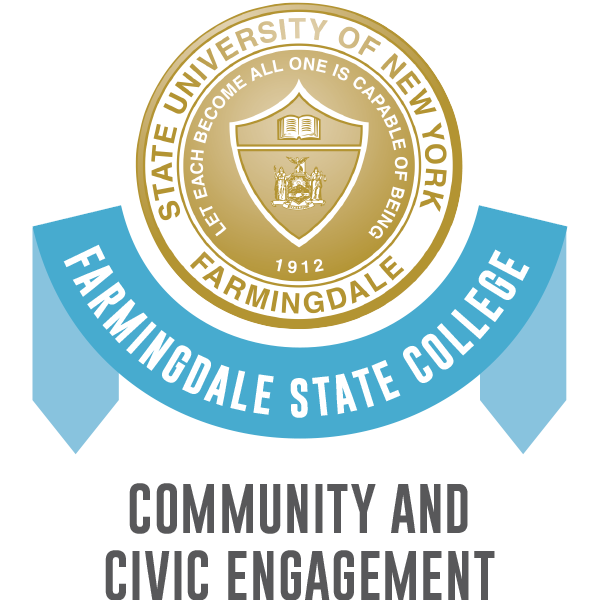 |
Community and Civic Engagement Earners of this microcredential will engage in Applied Learning experiences with real-world applications concentrated in community and civic engagement. Earners demonstrate a minimum of 20 hrs of Applied Learning specifically in designated civic engagement, community service, and community engagement/social justice internships. Activities integrate key competencies such as career/self-development, leadership, communication, professionalism, critical thinking, teamwork, equity & inclusion, and use of technology. Click here for more information. |
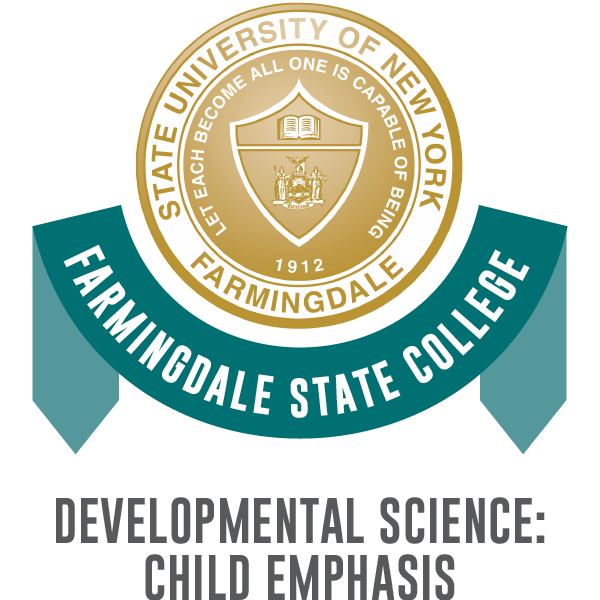 |
Developmental Science: Child Emphasis Earners of this microcredential will demonstrate an understanding of the educational, emotional, intellectual and social development of children. This microcredential will be of interest to those planning a career in working with typically or atypically developing children. (Teacher, School Counselor, Developmental Disabilities Specialist, Social Worker, Child Psychologist, Pediatric Nurse/Pediatrician, Child Life Specialist, Speech Pathologist, Researcher, or Applied Behavioral Analyst.) Click here for more information. |
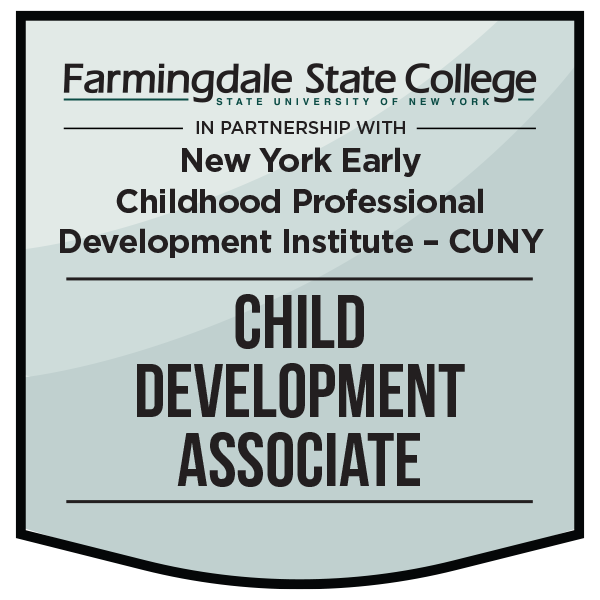 |
Child Development Associate: Infant/Toddler Earners of this microcredential will be provided with specialized content area training to enter the childcare field. It is designed for anyone who is interested in becoming an early childhood educator. Moreover, the credential is designed to provide additional knowledge and experience to students interested in applying for graduate education to study early child development, early childhood clinical intervention, or early childhood education. Click here for more information. This microcredential was developed in partnership with New York Early Childhood Professional Development Institute. |
 |
Earners of this microcredential will acquire knowledge and skills across the mathematical & computational spectrum. This microcredential provides a solid foundation in quantitative and computational finance within a hands-on, application-oriented learning environment. Course work includes basic financial mathematics, continuous-time finance, and financial engineering. Participants will gain quantitative method skills that can be leveraged across a diverse field of applications. Click here for more information. |
 |
Economic and Financial Analysis Earners of this microcredential will demonstrate a mastery of the concepts and tools necessary to conduct economic and financial analysis using cutting-edge tools. This microcredential provides skills in using R statistical programming language with an emphasis on using this powerful system to deal with economic and business data. Students will learn to import data, clean and transform raw data, visualize data, run simple models and apply these tools to conduct their own project in financial analytics, public policy, and other quantitative fields. Click here for more information. |
 |
Earners will develop skills required to perform management functions in service sector areas that focus on guest experience and hospitality, including the food and beverage, accommodation, travel, tourism, event management, and visitor attraction industries. Earners will acquire specialized industry knowledge and demonstrate competence in relevant areas of operations, marketing, CRM, leadership, human resources, and budget and finance, as well as planning, execution, and performance assessment. Click here for more information. |
 |
Earners of this microcredential will increase their knowledge of contemporary landscape sustainable practices and can help solve regional environmental problems. This microcredential establishes a common framework to define the profession of sustainable landscape design and development. Earners will demonstrate their knowledge, expertise, and commitment to the horticulture profession, the construction industry, stewardship of the environment, and society at large. Click here for more information. |
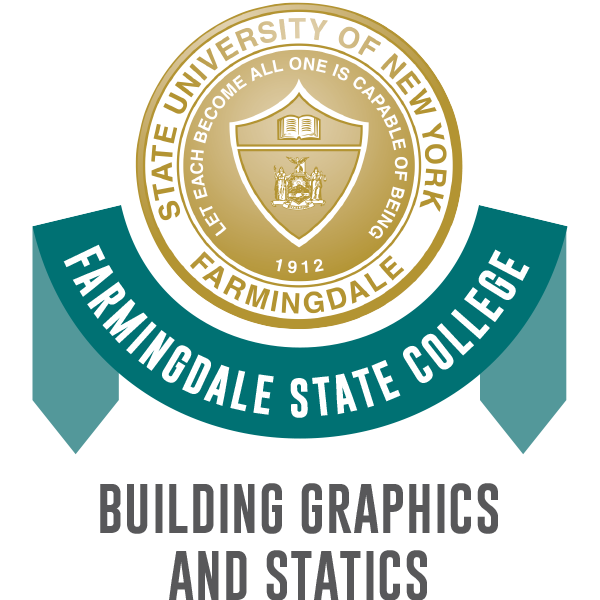 |
Earners of the Building Graphics and Statics Microcredential will demonstrate an understanding of construction graphics and statics. Credits earned in this microcredential are applicable toward the Architectural Engineering Technology and Construction Management Engineering Technology degree programs. In addition, the Building Graphics and Statics Microcredential will be of interest to those planning a career in architecture or construction management. Click here for more information. |
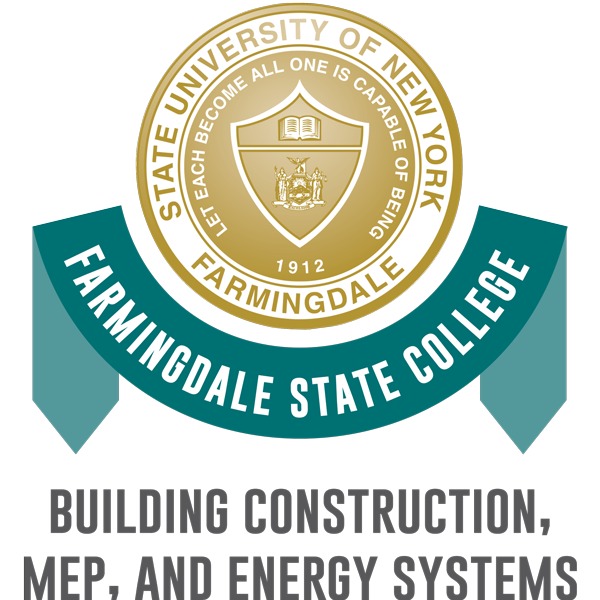 |
Building Construction, MEP, and Energy Systems Earners of the Building Construction, MEP, and Energy Systems microcredential will demonstrate an understanding of building construction materials and methods and mechanical, electrical, plumbing and energy systems. This microcredential will be of interest to those planning a career in architecture or construction management. Click here for more information. |
 |
Earners of the Pre-Construction Planning microcredential will have the opportunity to apply project planning and management skills that will demonstrate the ability to use these skills for an actual project in response to the standards of external firms, agencies and/or programs that manage construction projects. Earners will acquire experience through internships with external firms, agencies, or other professional constituents to develop the capstone project proposal and then execute the proposal under the supervision of an external firm. Click here for more information. |
 |
Earners of the Construction Project Costing microcredential are provided the opportunity to apply project accounting and estimating skills from the four courses in an approved internship to acquire experience with external firms, agencies or other professional constituents. A faculty adviser will work with the student using the ARC 303 internship course. Click here for more information. |
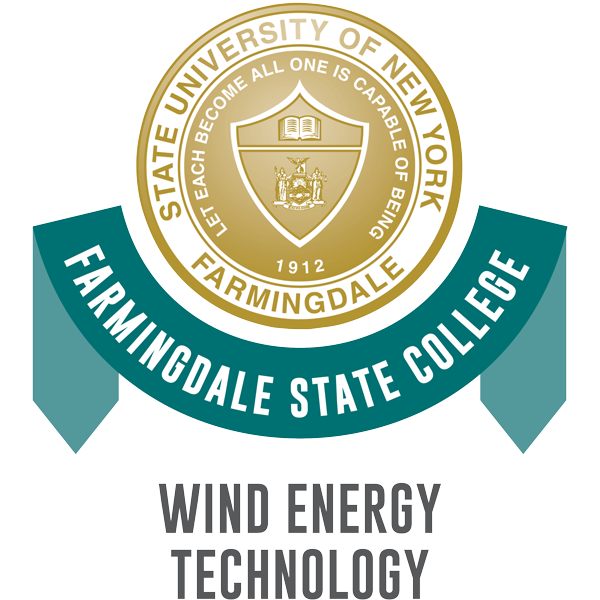 |
Earners of the Wind Energy Technology microcredential will receive preparation for technical careers in wind energy-related fields. Facilities and laboratories specifically designed and equipped for the microcredential will provide students with hands-on experience to learn and apply theory through the use of trainers and virtual reality simulations. The microcredential will be of interest to those planning a career in wind energy. Click here for more information. |
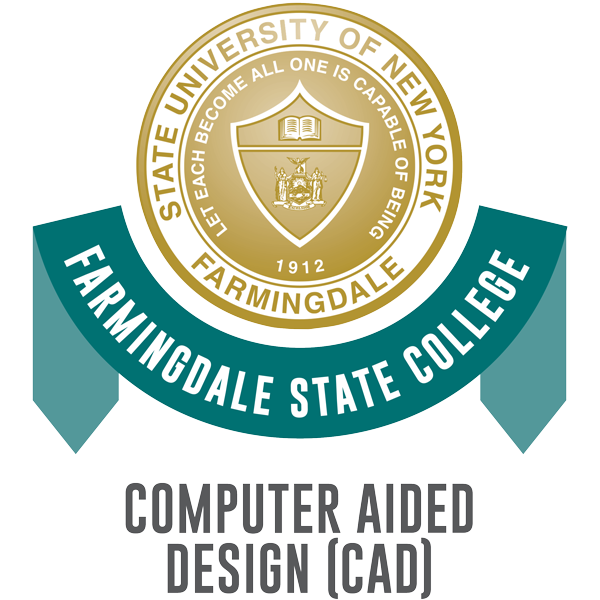 |
Earners of this microcredential will demonstrate an understanding of CAD, manufacturing, and tool design. This microcredential will be of interest to those planning a career in mechanical engineering, manufacturing engineering, product design, mechanical system design, or automation. Computer Aided Design (CAD) is one of the main skills required in the engineering field. Click here for more information. |
 |
Critically Thinking about Popular Media Earners of this microcredential will develop their critical thinking skills by analyzing and interpreting popular media. Students will learn how popular media imparts meaning by examining their history, evolution, composition, consumption, production, and translation from one format to another. Special attention is paid to how issues of diversity, equity, and inclusion are raised by popular media. Click here for more information. |
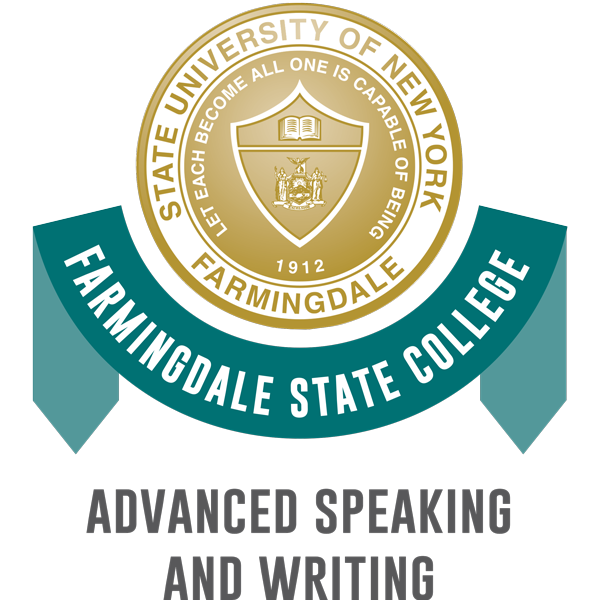 |
Earners of this microcredential will develop advanced skills in speaking and writing that can be applied to professional, civil, and academic contexts. This microcredential will be of interest to students pursuing careers in fields that demand the effective presentation of ideas and high levels of communicative competence. Coursework in this microcredential will hone skills in professional and technical speaking and writing, persuasion, and the objective presentation of information. Click here for more information. |
 |
Global and Cultural Awareness |
 |
Spanish Language and Cultural Competence Earners of this microcredential will develop intermediate Spanish proficiency in listening, reading, speaking, and writing with stress on communicative competence and cultural awareness. This microcredential will be of interest to any students to showcase Spanish language skills and cultural competence. Coursework includes one intermediate Spanish course, one MLG course, and one final project paper. Click here for more information. |
 |
Diversity, Equity, Inclusion & Social Justice Earners of this microcredential are provided a process for creating courses that support Diversity, Equity, Inclusion & Social Justice that utilizes best practices for education on identity and intersectionality. This microcredential delivers inclusive teaching practices that can be integrated into the classroom using the Universal Design for Learning framework. Earners complete a syllabus with DEISJ student learning outcomes and assessments at the culmination of this microcredential. Click here for more information. |
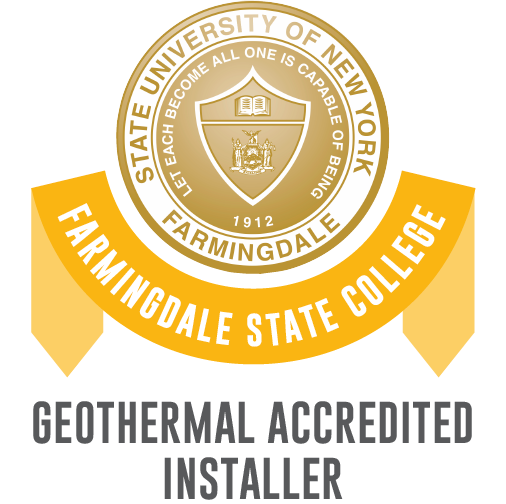 |
Geothermal Accredited Installer Earners of this microcredential will acquire skills to install and troubleshoot Ground-Source Heat Pump (GSHP) systems and learn the overall system design of Geothermal systems. Earners will also learn how to select material, pumps, and fluids. In addition, earners will be exposed to proper drilling and trenching procedures. Click here for more information. |
